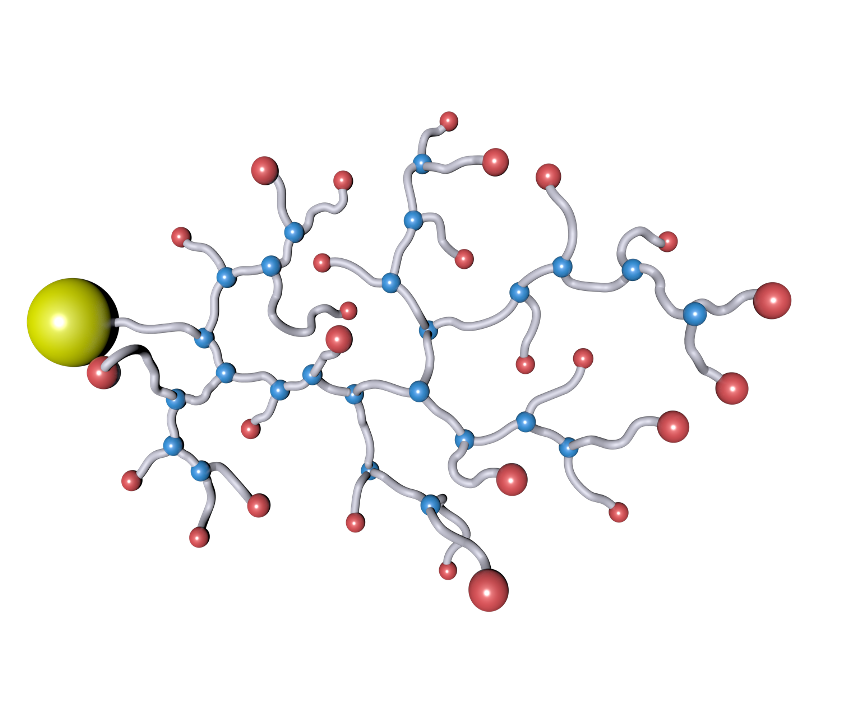Custom-made Polymers: Tailored Solutions for Special Applications
Custom-made Polymers: Tailored Solutions for Special Applications
Blog Article
Checking Out the Varied Applications and Benefits of Polymers in Different Industries
Polymers, with their diverse variety of properties and capabilities, have become essential in numerous industries, each enjoying special benefits from their application. From improving safety and security and efficiency in the automotive industry to changing clinical gadgets in the medical care industry, polymers play a critical duty.
Automotive Sector Applications
Polymers play a critical function in enhancing the performance and longevity of numerous components within the vehicle sector. These functional products are thoroughly used in the production of different components, ranging from indoor elements to under-the-hood applications. One prominent use of polymers in the automobile sector remains in the manufacturing of light-weight elements. By replacing standard steel components with polymer-based options, cars can attain better gas efficiency without endangering on toughness or safety and security.

Medical Care Industry Benefits
In numerous health care applications, the benefits of making use of polymers are commonly recognized for their varied array of valuable homes. Polymers play a crucial function in the healthcare sector because of their convenience, biocompatibility, and cost-effectiveness. Among the key advantages of polymers in health care is their ability to be tailored to details needs, such as adaptability, resilience, and biodegradability, making them optimal for a variety of clinical applications.
Polymer-based materials are extensively made use of in clinical tools, such as catheters, implants, prosthetics, and drug distribution systems, due to their biocompatibility and capability to simulate natural tissues. These materials can reduce the risk of allergies or rejections, boosting person safety and end results. Furthermore, polymers are lightweight, making them ideal for wearable medical devices and making certain person convenience.
Moreover, polymers make it possible for the advancement of cutting-edge therapy methods, such as hydrogels for tissue engineering and nanocomposites for targeted medication distribution. Their convenience of processing and sterilization makes them vital for maintaining high criteria of hygiene in medical care settings. On the whole, the diverse benefits of polymers add dramatically to innovations in medical technology and person care.
Ecological Advantages of Polymers

Furthermore, polymers can add to power financial savings due to their light-weight nature. In industries such as transportation, lightweight polymer products can assist minimize gas intake and greenhouse gas emissions. In addition, polymers can make it possible for the development of energy-efficient products such as insulation materials that enhance energy preservation in structures.
Furthermore, polymers play an essential role in reducing water air pollution. For example, making use of polymer-based filtering systems can efficiently remove contaminants and contaminants from wastewater, guarding water sources and environments. On the whole, the environmental advantages of polymers make them important assets in advertising find more info sustainability and eco-friendly techniques throughout various sectors.
Polymers in Electronic Devices and Technology
Considering the raising demand for innovative and lasting services in modern-day markets, the combination of sophisticated polymer innovations in the world of electronic devices and modern technology has become an essential technique for driving effectiveness and performance. Polymers have revolutionized the electronics sector by allowing the production of lighter, more adaptable, and sturdy electronic devices. From smart devices to clinical devices, polymers play a vital duty in boosting item layout and performance.
One significant advantage of polymers in electronic devices is their insulating buildings, which assist protect fragile electronic parts from environmental variables and electric disturbance. Furthermore, polymers are important in the advancement of flexible displays, wearable innovation, and published electronic devices, using endless opportunities for producing clever and interconnected tools.
Additionally, making use of polymers in digital packaging has actually over here led to improvements in miniaturization and thermal management, improving the general efficiency and dependability of digital systems. As modern technology remains to develop, the flexibility and versatility of polymers will unquestionably drive better technology in the electronic devices market, shaping the future of innovation.
Duty of Polymers in Building And Construction and Framework
The combination of advanced polymer products in building and framework projects has revolutionized the method frameworks are designed and constructed in modern times. Polymers supply numerous advantages in the building sector because of their flexibility, sturdiness, and cost-effectiveness. One vital function of polymers in building and construction is their usage in layers and sealers, providing defense against environmental aspects such as moisture, UV radiation, and deterioration. In addition, polymers are utilized in the production of lightweight and high-strength composite products, boosting the architectural honesty of buildings while lowering total weight.
Moreover, polymers play an essential function in sustainable building methods by allowing the growth of energy-efficient frameworks. Insulating materials made from polymers assist regulate interior temperatures, lowering the need for heating use this link and cooling down systems and ultimately decreasing energy consumption. Moreover, the use of polymer-based compounds in framework projects such as bridges and roads enhances their durability and reduces maintenance expenses. On the whole, the unification of polymers in construction and framework displays their considerable influence on modern-day engineering techniques.
Final Thought
In final thought, polymers play a critical function in different sectors such as automobile, healthcare, environmental, electronic devices, and building. From enhancing fuel effectiveness in vehicles to improving clinical gadgets, polymers use various benefits.
Report this page